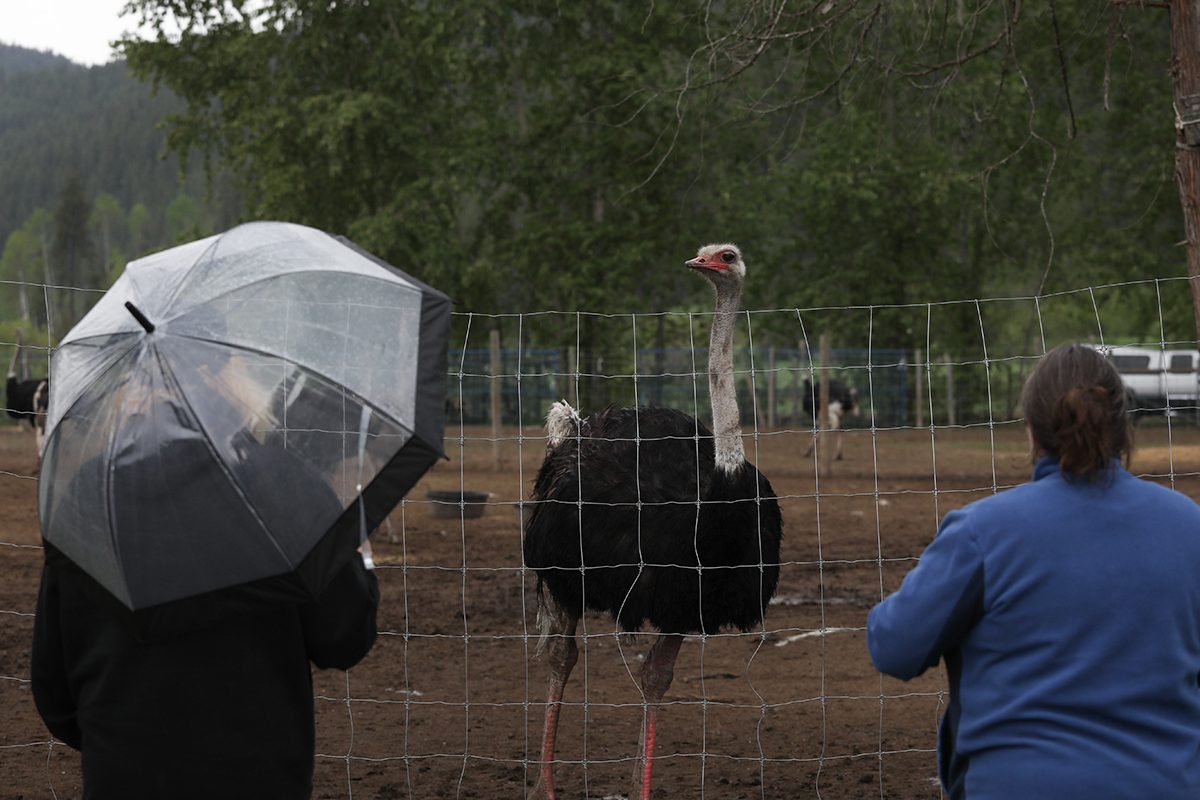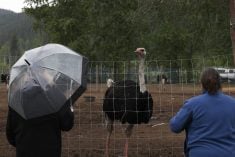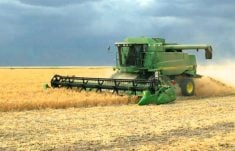(Reuters) — Monsanto Co.’s efforts to expand its agrichemical interests beyond what has long been its bread and butter glyphosate herbicide business were underscored on Wednesday by news the company plans to invest potentially more than US $1 billion in a production facility for an alternative herbicide.
Monsanto officials expect to spend the money over the next three to five years expanding a plant in Luling, Louisiana, to produce the weed killing agent called dicamba. Luling has been a key location for glyphosate production for years.
The interest and investment in dicamba represents a step away from the company’s reliance on glyphosate, which is the key ingredient in Monsanto’s branded Roundup line of herbicides.
Read Also

B.C. ostrich owner condemns violence near embattled farm
One of the owners of Universal Ostrich near Edgewood, B.C. condemned the alleged assault and arson against one of the farm’s neighbours said to have been committed by a protestor. The farm is in a legal battle with federal authorities over a cull order of the farm’s ostriches, which contracted avian influenza.
Glyphosate is also the key to many of Monsanto’s genetically engineered crop lines. The company makes corn, soybeans, cotton, canola and other crops that can tolerate being sprayed with glyphosate.
“Over the next decade … this holds the potential to further diversify our ag productivity segment and provide a source of growth longer term,” Monsanto President Brett Begemann told analysts in a conference call.
Roundup and the “Roundup Ready” crops Monsanto engineers have been very popular with farmers. However, widespread planting of Roundup Ready corn and soybeans, and associated widespread use of Roundup weed killer, has contributed to the rise of weeds resistant to glyphosate.
The weed resistance problem has become such a significant problem for crop production that farmers are seeking alternatives and Monsanto and its rivals in the agrichemical industry are racing to introduce new options for glyphosate and Roundup Ready crops.
“The reality is the industry is going to have to continually evolve just like plant life evolves,” said Edward Jones analyst Matt Arnold.
Monsanto’s solution combines glyphosate with dicamba for what it is calling the “Roundup Ready Xtend” crop system, aimed at soybean and cotton farmers.
Rival Dow AgroSciences, a unit of Dow Chemical Co., has developed crops that tolerate its new herbicide, which combines 2,4-D with glyphosate.
Monsanto said it sees at least a 200 million acre “practical fit” for its Roundup Ready Xtend system for soybeans and cotton in the Americas.
The company said on Wednesday it is still awaiting approval from Chinese regulators to allow imports of the new soybeans. China is a key buyer of U.S. soybeans, but has shown reluctance to approve imports of new GMO crops.














